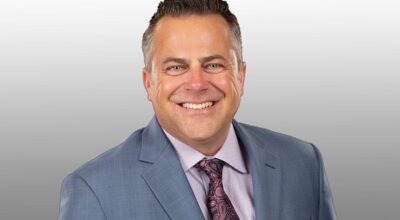Brain Waves: Dr. St. Martin discuses dementia, Alzheimer’s realities
Published 11:45 pm Tuesday, June 24, 2014
By Stephen Hemelt
L’Observateur
LAPLACE — The broad term “dementia” basically means a person has a change in their status, where they cannot remember things. This can mean they have difficulty making judgments and/or their cognitive skills have decreased.
L’Observateur recently spoke with Dr. Andrew St. Martin of LaPlace Medical Center to outline what it means to have dementia, how that relates to Alzheimer’s disease and how the medical community treats those afflicted.
St. Martin said there are many causes of dementia, including substance abuse and other medical problems; however, the general consensus when most people think of dementia is of an Alzheimer’s-type dementia, where amyloid proteins deposited in brain cells end up killing the brain cells, making them dysfunctional.
Some people have a genetic pre-disposition for dementia.
“Essentially, if your first-degree relatives have had dementia, you are more likely than the average bear to get dementia,” St. Martin said, adding there really is no particular way to prevent Alzheimer’s-type dementia.
“We think by appropriate lifestyle changes we want for all the other things — cardiovascular health for a good well-being, proper diet, eating well, exercise, using your mind and continued mental stimulation — all those things may help you reduce your chances or delay the onset of it, but there is no real exact ‘that will do it’ or ‘this will do it,’” St. Martin said.
Those diagnosed with Alzheimer’s-type dementia are typically referred to a physician by their family members, because loved ones notice someone being more forgetful.
“The physician evaluates them, and we kind of put it in broad categories of Alzheimer’s-type dementia: mild, moderate and severe,” St. Martin said.
For the mild dementia, some may start medicines early on, but St. Martin said, to his knowledge, the medical community does not really know if starting medicines early makes that huge of a difference.
“Especially with the Alzheimer’s-type dementia that we can use medicines for, we’re not going to stop or prevent it,” St. Martin said. “All we can do is slow the progression. Alzheimer’s-type dementia is typically a linear progression or slope progression from functioning to non-functioning. The slope may happen over three years to death. We can delay that to four years or a little bit longer. We can decrease the rate of decline.”
St. Martin said the hope is the use of medicines will help maintain patients’ mental ability and physical ability, so they can cognitively do things around the house.
The longer a person with dementia stays functioning, meaning brushing their teeth, changing their clothes and toileting themselves, the less care is required.
“I think we are getting better treatment outcomes medicine-wise,” St. Martin said. “We’re also getting better at identifying it a little bit earlier, recognizing it and getting other treatment programs to help them earlier as opposed to letting grandpa stay at home until he is really bad and throwing him in the nursing home.
“Anytime you are treating a person with dementia, all the types we are dealing with, the onus for care ends up being on their loved ones. It is a huge financial and emotional strain for family members to take care of them.”
As the progression goes, most with Alzheimer’s-type dementia become forgetful, and say “I want to go home,” keep reiterating things and get agitated, especially at sundown.
It is very difficult for family members.
However, there are Alzheimer’s support groups.
“That is probably the No. 1 thing that helps is to find support groups and people to relieve you of these things, (give) you a week off here and there,” St. Martin said. “There are actually different programs that you can get nowadays. There are private sitters that come in and give you some rest during the day. There are also places when you (have someone with) mild to moderate dementia, senior citizens places during the day, that are daycare programs for elderly patients, where you can leave a family member so you can go to work and get some time off.”





